Hinduism, one of the oldest religions globally, is characterized by a diverse pantheon of gods and goddesses, each embodying distinct qualities and powers. From the grandeur of Brahma, the creator, to the compassion of Vishnu, the preserver, and the ferocity of Kali, the destroyer, Hindu mythology teems with narratives of cosmic balance and divine intervention. In this exploration, we delve into the lore of Hindu deities to unearth the top 10 most powerful Hindu gods and goddesses revered by millions worldwide.
The Most Powerful Hindu gods
1. Lord Brahma – The Creator
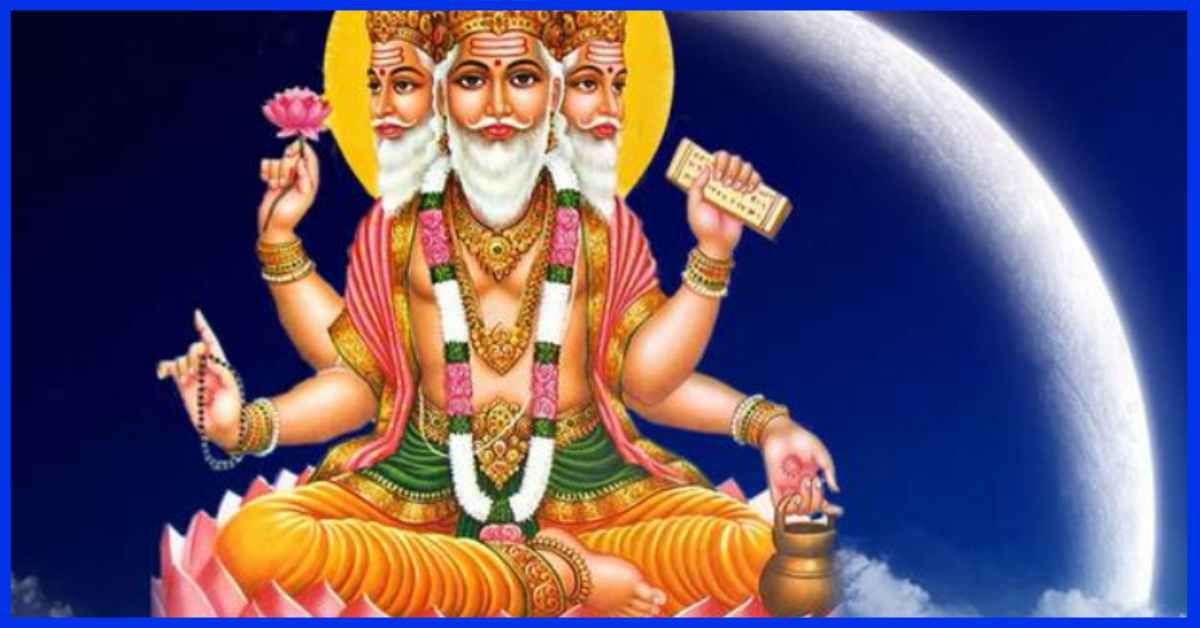
In Hindu cosmology, Brahma, the creator god, occupies a unique position within the celestial hierarchy. He is one of the most powerful hindu gods. Emerging from the cosmic lotus that blossomed from Lord Vishnu’s navel, Brahma embodies the primordial force of creation, tasked with the divine responsibility of manifesting the universe and all its inhabitants. With four faces facing each cardinal direction, Brahma symbolizes omniscience, reflecting his mastery over the Vedas, the sacred scriptures that serve as the foundation of Hindu knowledge.
Despite his pivotal role in the creation myth, Brahma’s worship is relatively subdued compared to other deities. Hindu theology attributes this to an incident where Brahma’s ego and desire for supremacy led to a curse from his consort, Saraswati. Consequently, Brahma is often depicted as meditative, immersed in the cosmic waters of creation, his four heads bowed in reverence to the eternal truths that govern existence.
Although temples dedicated exclusively to Brahma are rare, his presence permeates Hindu cosmology, serving as a reminder of the intricate web of creation woven by divine forces. Devotees venerate Brahma during special rituals and ceremonies, acknowledging his role as the progenitor of life and the architect of the universe. Through Brahma’s divine grace, seekers aspire to unlock the mysteries of existence and attain spiritual enlightenment in the cosmic dance of creation and dissolution.
2. Vishnu – The Preserver
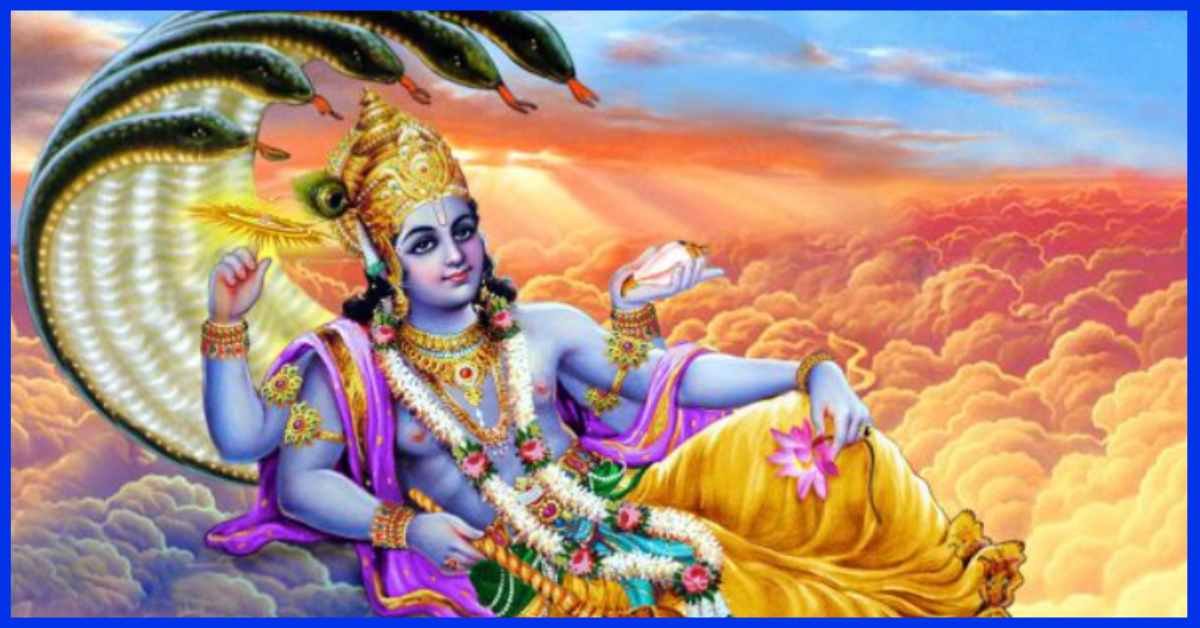
Lord Vishnu, the preserver of the universe, incarnates in various forms (avatars) to restore cosmic balance and protect dharma (righteousness). From his abode in Vaikuntha, Vishnu oversees the preservation of the cosmos, intervening whenever evil threatens to disrupt the balance of the universe. His primary duty is to maintain order and harmony, ensuring that righteousness prevails over chaos.
Vishnu’s avatars include iconic figures such as Lord Rama and Lord Krishna, each representing different facets of his divine attributes. As Rama, he embodies righteousness, honor, and duty, exemplifying the ideal king and noble warrior. In the epic Ramayana, Vishnu incarnates to rid the world of the demon king Ravana and establish dharma.
In his avatar as Krishna, Vishnu radiates love, compassion, and spiritual wisdom. The Bhagavad Gita, a sacred text within Hinduism, captures the essence of his teachings to Arjuna on duty and righteousness amidst the battlefield of life. Vishnu is one of the most powerful god in hindu mythology.
Devotees revere Vishnu through rituals, prayers, and festivals, seeking his benevolent protection and guidance in navigating life’s trials. His consort, Goddess Lakshmi, symbolizes wealth, prosperity, and auspiciousness, complementing Vishnu’s role as the preserver of cosmic order.
In temples and homes across the world, images and idols of Vishnu adorn altars, reminding devotees of his eternal presence and divine grace. Through devotion and righteous living, followers aspire to connect with Vishnu’s divine essence, drawing strength and solace from his timeless wisdom and unwavering protection.
3. Lord Shiva – The Destroyer
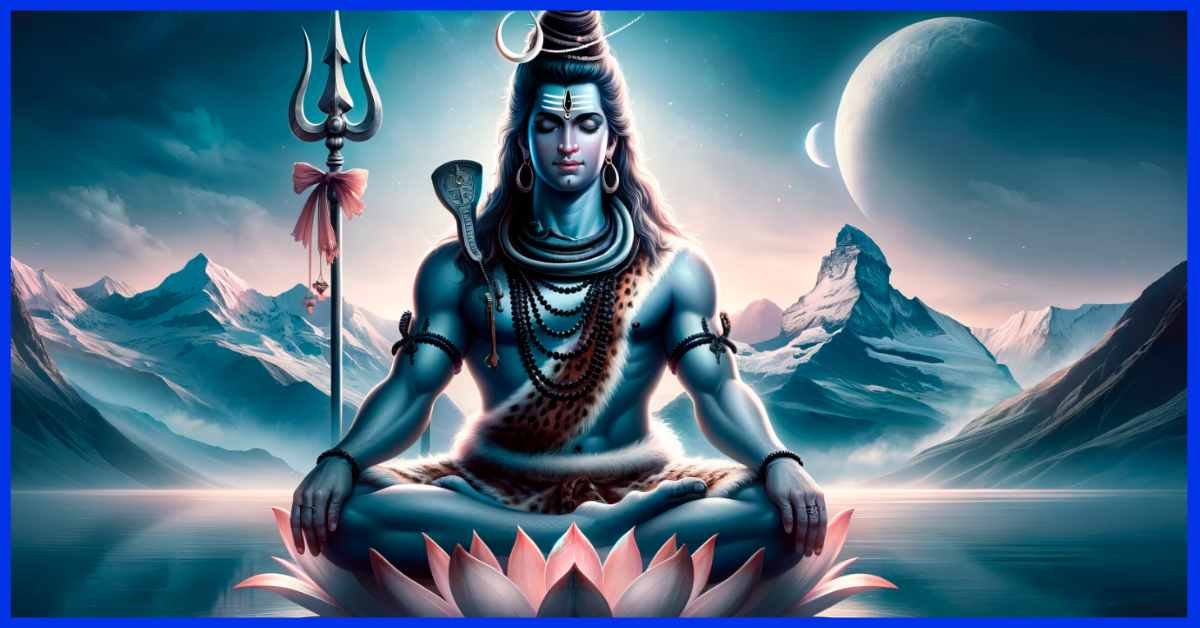
Lord Shiva, often depicted with a serene countenance adorned in serpents and ashes, stands as the embodiment of both destruction and regeneration in Hindu mythology. His cosmic dance, known as the Tandava, symbolizes the eternal cycle of creation, preservation, and dissolution. As the destroyer of the universe, Shiva annihilates the illusions of ego and ignorance, paving the way for spiritual enlightenment and renewal.
Shiva’s third eye, situated on his forehead, represents the power of wisdom and insight. When opened, it emits a fiery beam that consumes all falsehood and impurities, purifying the soul and revealing the essence of truth. Despite his fierce aspect as the destroyer, Shiva is also revered as a compassionate deity who grants liberation (moksha) to his devotees. Also the most powerful god according to hindu mythology.
Throughout Hindu mythology, Shiva’s manifestations and attributes vary widely, ranging from his role as the ascetic yogi to that of the loving husband of Goddess Parvati and father of Lord Ganesha and Kartikeya. His abode atop Mount Kailash, surrounded by celestial beings and sages, symbolizes the transcendence of earthly attachments and the attainment of spiritual heights.
Devotees of Shiva, known as Shaivites, worship him with fervent devotion, seeking his blessings for inner peace, spiritual enlightenment, and protection from worldly afflictions. Through meditation, prayer, and the chanting of sacred mantras such as the Om Namah Shivaya, followers strive to align themselves with Shiva’s divine presence and attain union with the ultimate reality.
4. Goddess Lakshmi – The Goddess of Wealth
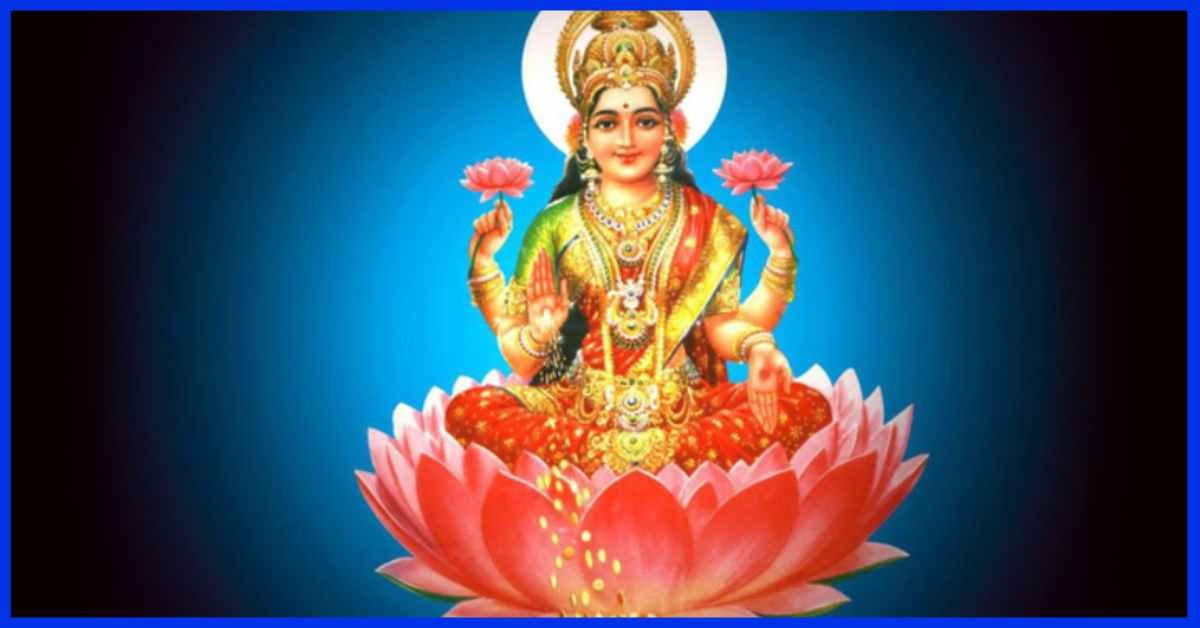
Goddess Lakshmi, the epitome of prosperity and abundance, bestows wealth, fortune, and auspiciousness upon her devotees. She is often depicted adorned with lotus flowers and gold coins, radiating beauty and grace. Lakshmi’s presence symbolizes both material and spiritual prosperity, nurturing households and hearts alike.
Devotees invoke Lakshmi’s blessings through rituals, prayers, and offerings, seeking her divine grace to overcome financial difficulties and embrace abundance in all aspects of life. Her blessings are not confined to wealth alone but extend to encompass peace, happiness, and spiritual fulfillment. Lakshmi’s consort is Lord Vishnu, signifying the inseparable connection between wealth and righteousness.
During festivals such as Diwali, the Festival of Lights, devotees fervently worship Lakshmi to invite her blessings into their homes and lives. Homes are adorned with lamps and colorful decorations, signifying the illumination of inner light and the welcoming of prosperity.
Lakshmi’s significance transcends mere material wealth; she embodies the virtues of generosity, gratitude, and contentment. Her devotees strive not only to accumulate wealth but also to share their blessings with others and cultivate a sense of abundance within themselves.
In times of adversity, devotees turn to Lakshmi for solace and support, trusting in her benevolence to guide them through life’s challenges. Through devotion and steadfast faith, devotees forge a deep connection with Lakshmi, experiencing her divine presence in every aspect of their lives.
5. Goddess Saraswati – The Goddess of Knowledge
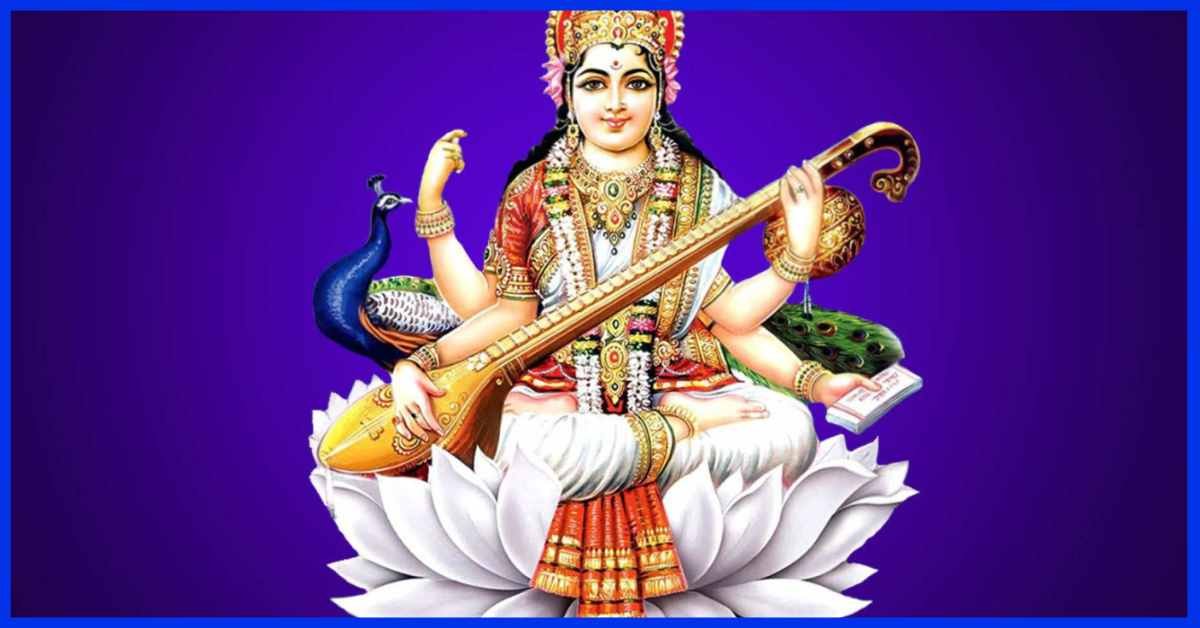
Goddess Saraswati, the embodiment of wisdom and creativity, blesses seekers with the gift of knowledge, music, and the arts. Saraswati’s presence is felt not only in scholarly pursuits but also in the realms of music, literature, and the sciences, where her inspiration ignites the flames of creativity and innovation.
She is often depicted seated gracefully on a lotus, symbolizing purity and transcendence. In her hands, she holds the sacred scriptures, the Vedas, signifying her role as the ultimate source of divine wisdom. Adorned with a veena, Saraswati produces melodies that resonate through the cosmos, harmonizing the universe with her celestial music.
Devotees invoke Saraswati’s blessings during academic endeavors, examinations, and artistic pursuits, seeking her divine guidance and inspiration. Her gentle presence encourages seekers to delve into the depths of knowledge and explore the vast expanse of human creativity.
Saraswati’s association with the swan represents discernment and discrimination, guiding devotees to distinguish between truth and falsehood. Through her grace, seekers transcend ignorance and embrace enlightenment, illuminating the path towards self-realization and spiritual awakening.
In temples and homes across the world, Saraswati is revered with fervent devotion and gratitude, her presence a constant reminder of the boundless power of knowledge and the transformative potential of the human spirit.
6. Lord Hanuman – The Monkey God
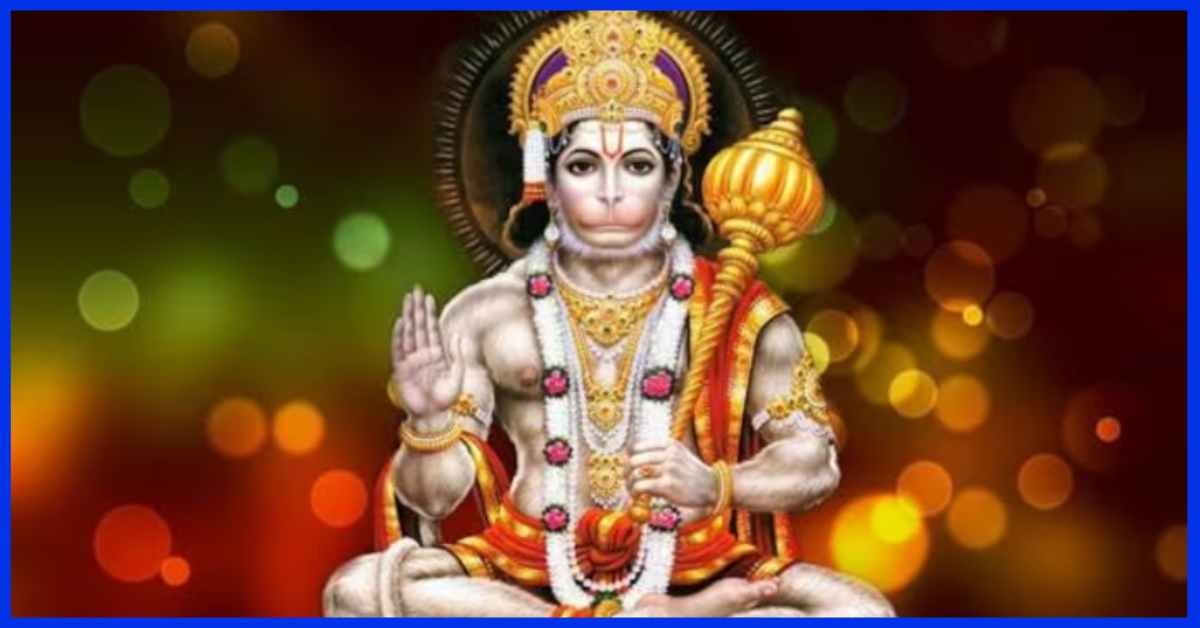
It would be an absurd list, if we haven’t added Lord Hanuman in the list of Top 10 Most Powerful Hindu Gods, revered as the Monkey God, occupies a unique and beloved position in Hindu mythology. Born to the wind god Vayu and Anjana, he embodies unwavering devotion, boundless strength, and selfless service. Hanuman’s allegiance to Lord Rama, the seventh avatar of Vishnu, is legendary, exemplifying loyalty and dedication beyond measure.
As a central character in the epic Ramayana, Hanuman plays a pivotal role in the quest to rescue Sita, Rama’s consort, from the clutches of the demon king Ravana. Endowed with the ability to change size at will and possess incredible strength, he leaps across oceans, defeats formidable adversaries, and uplifts mountains in his unwavering devotion to Rama.
Hanuman’s devotion to Rama transcends mere physical prowess; it reflects a profound spiritual connection and unwavering faith. His humility, courage, and selflessness serve as an inspiration to devotees, guiding them through life’s trials with grace and determination.
Worshipped for his ability to remove obstacles and bestow blessings, Hanuman temples dot the landscape of India and beyond. Devotees chant hymns and prayers in his honor, seeking his protection and guidance in times of need.
Hanuman’s story resonates deeply with believers, reminding them of the power of faith, the strength of devotion, and the triumph of good over evil. As the embodiment of loyalty and service, Hanuman remains an enduring symbol of courage, devotion, and unwavering commitment to righteousness.
7. Goddess Durga – The Divine Mother
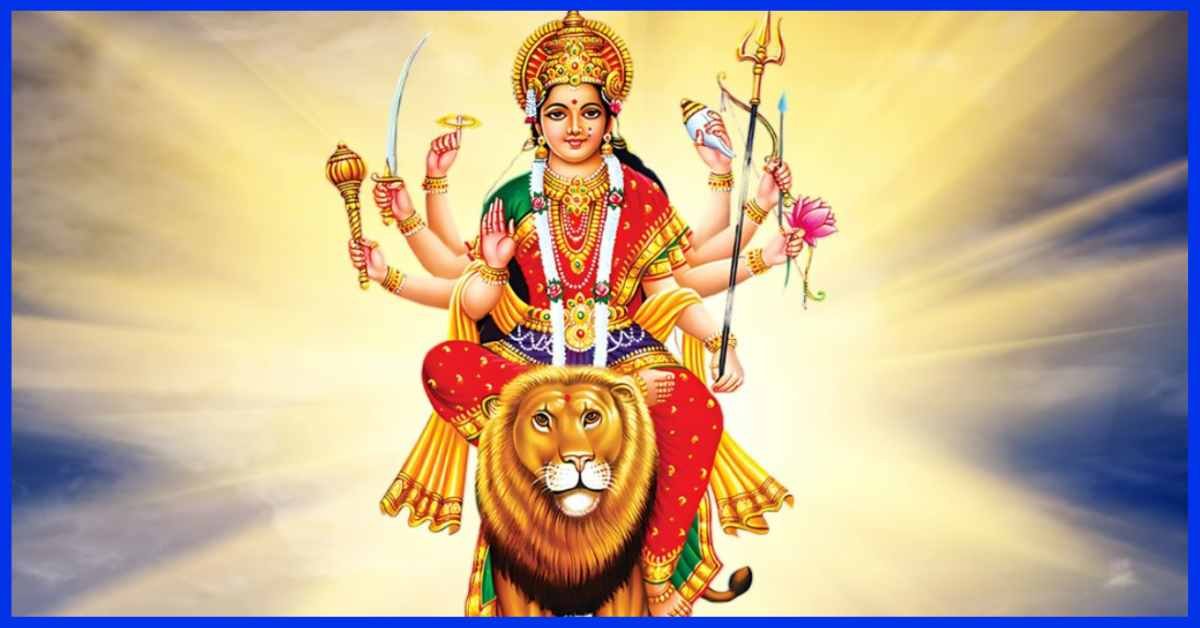
Goddess Durga, often hailed as the Divine Mother, occupies a paramount position in Hindu mythology as the embodiment of feminine power and resilience. She emerges from the cosmic energies of the gods, armed with divine weapons and riding atop a lion or tiger, symbolizing her prowess and fearlessness.
Durga’s iconography reflects her multifaceted nature; she is both serene and fierce, nurturing and protective. Her many arms hold an array of weapons, each signifying her readiness to confront and vanquish the forces of darkness and ignorance that threaten the cosmic order.
During the festival of Navaratri, devotees celebrate Durga’s triumph over the buffalo demon Mahishasura, a victory emblematic of the triumph of good over evil. Through her valor and compassion, Durga instills courage and hope in her devotees, guiding them through life’s trials and tribulations.
Beyond her martial prowess, Durga embodies maternal love and protection. Like a caring mother, she shields her devotees from harm and showers them with blessings, fostering a sense of security and well-being.
Devotees invoke Goddess Durga’s blessings during Navaratri and other auspicious occasions, seeking her divine grace to overcome obstacles, dispel negativity, and lead a life filled with righteousness and spiritual fulfillment. In her myriad forms, Durga stands as a beacon of strength, compassion, and divine grace, inspiring devotees to tread the path of righteousness with unwavering faith and devotion.
8. Ganesha – The Remover of Obstacles
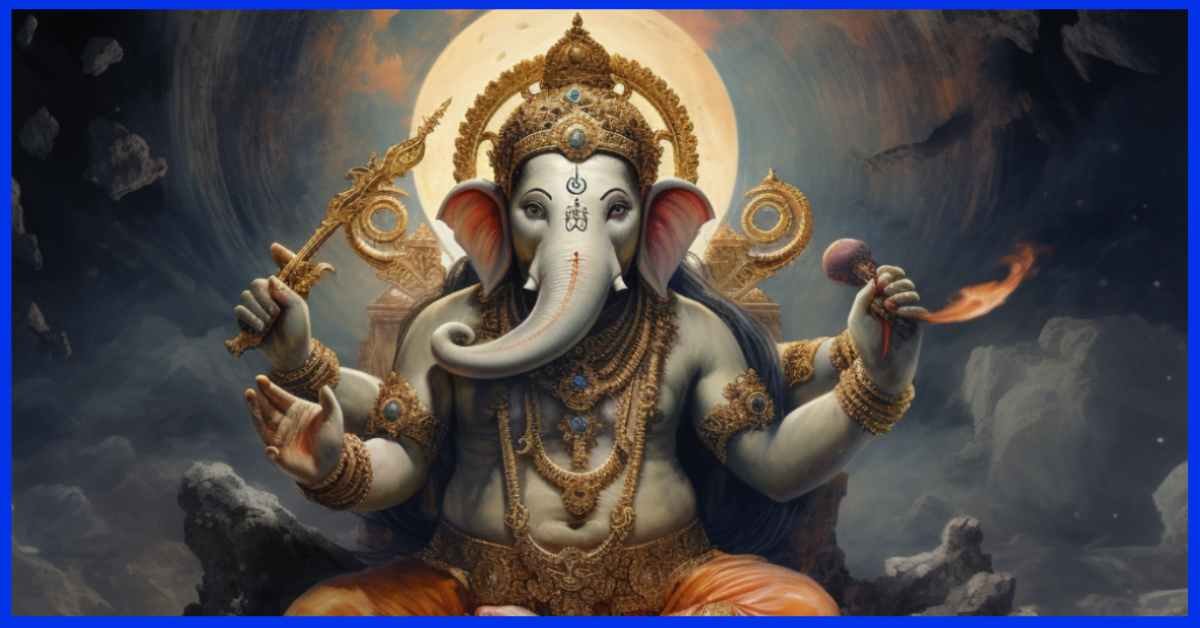
Lord Ganesha, the beloved elephant-headed god, is venerated as the remover of obstacles and the patron of new beginnings. With his endearing appearance and gentle demeanor, Ganesha embodies wisdom, intellect, and benevolence. His iconic elephant head symbolizes supreme intelligence and foresight, while his rotund form represents the vastness of the cosmos contained within.
Devotees invoke Ganesha’s blessings at the outset of new ventures, journeys, and life events, seeking his guidance and protection against impediments. Through rituals and prayers dedicated to him, devotees cultivate a sense of optimism, resilience, and adaptability in facing life’s challenges.
Ganesha’s popularity transcends religious boundaries, permeating various cultural and spiritual traditions beyond Hinduism. His inclusive nature and compassionate presence resonate with people seeking solace and support in times of uncertainty and transition.
Legend has it that Ganesha scribed the Mahabharata as Sage Vyasa dictated it, symbolizing his role as the lord of wisdom and literature. His broken tusk, sacrificed to scribe the epic, signifies the willingness to sacrifice ego for the greater good.
In embracing Ganesha’s teachings, devotees aspire to cultivate humility, perseverance, and integrity on their spiritual journeys. Through his divine grace, Ganesha guides seekers towards inner transformation and the realization of their true potential, illuminating the path to fulfillment and spiritual liberation.
9. Krishna – The Divine Cowherd
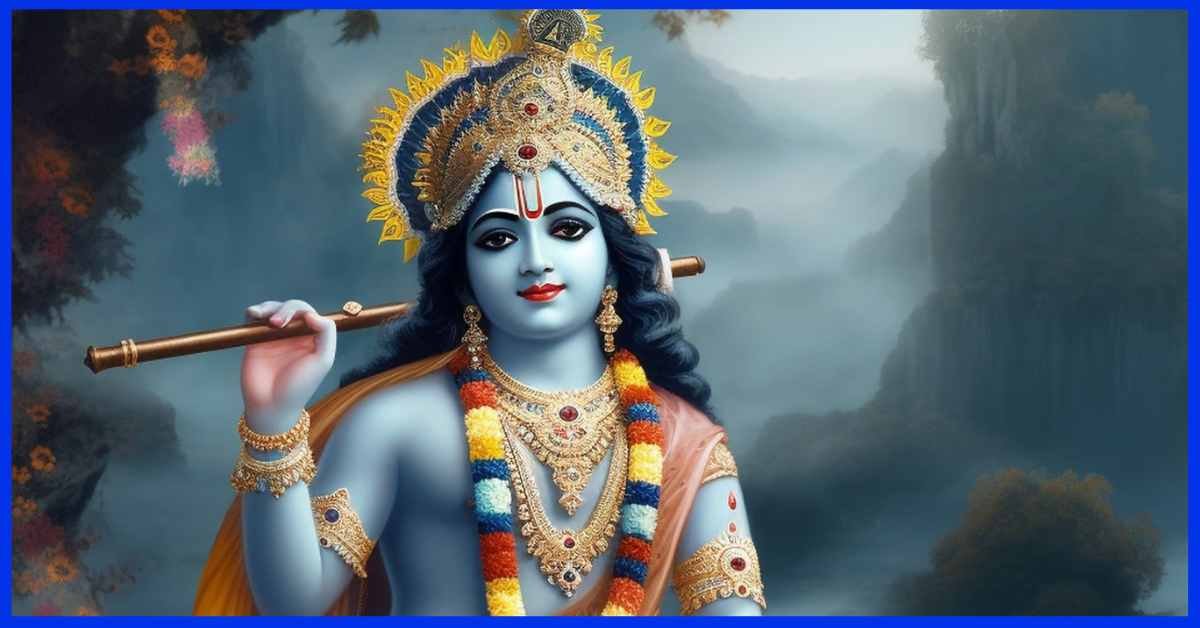
Lord Krishna, the beloved deity adorned in peacock feathers, captivates devotees with his playful antics and profound teachings. Born in the heart of Vrindavan, Krishna enchants all with his divine presence, playing the flute and engaging in leelas (divine pastimes) with devotees and cowherds alike. As the supreme personality of Godhead, most powerful hindu god, he embodies love, joy, and spiritual enlightenment, guiding souls towards liberation from the cycle of birth and death.
Krishna’s life is a testament to divine grace and eternal wisdom. His childhood exploits, from stealing butter to charming the gopis (cowherd girls), exemplify his divine nature and playful spirit. Through his teachings in the Bhagavad Gita, Krishna imparts timeless wisdom on duty, righteousness, and the path to self-realization, inspiring seekers across generations to embrace devotion and righteousness.
Krishna’s raslila (divine dance) with the gopis symbolizes the eternal bond between the individual soul and the divine, illustrating the essence of divine love and union. Devotees immerse themselves in Krishna’s leelas and bhajans (devotional songs), experiencing the bliss of divine communion and surrendering to his boundless love.
In temples and households worldwide, Krishna is revered as the beloved friend, philosopher, and guide, offering solace and inspiration to devotees on their spiritual journey. His divine presence continues to illuminate hearts and minds, beckoning souls towards the eternal abode of divine love and transcendental bliss.
10. Kali – The Dark Mother
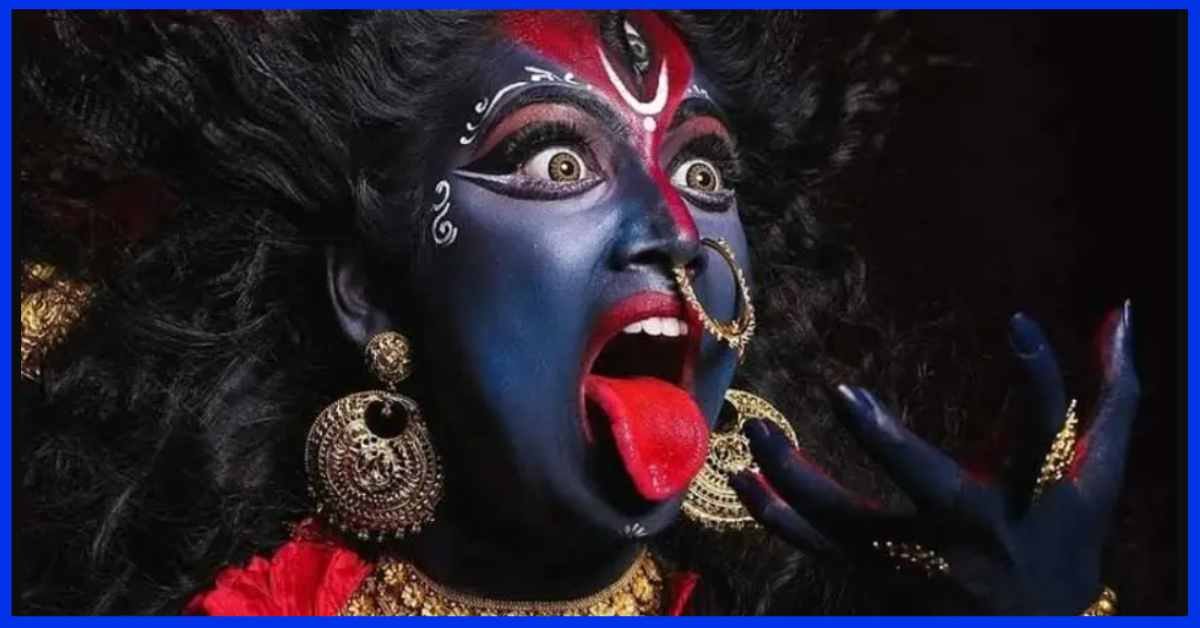
Goddess Kali, often depicted with a fierce countenance and wielding weapons of destruction, embodies the raw power of creation and annihilation, the most powerful hindu god. Her name itself means “time” or “the black one,” symbolizing the eternal passage of time and the eventual dissolution of all things in the cosmos. Adorned with a garland of severed heads and standing upon the lifeless body of Lord Shiva, Kali represents the ultimate reality beyond the veil of illusion.
Kali’s ferocity is not mere destruction but a transformative force that annihilates ignorance and liberates souls from worldly attachments. She is the embodiment of Shakti, the divine feminine energy that propels the universe forward in its eternal cycle of birth, death, and rebirth. Devotees invoke Kali’s blessings during rituals and festivals, embracing her transformative energy and seeking liberation from the cycle of samsara (birth and death).
Despite her fearsome appearance, Kali is also a nurturing mother to her devotees, fiercely protecting them from harm and guiding them towards spiritual enlightenment. In her dance of destruction, she destroys ego and attachment, paving the way for the devotee’s union with the divine. Kali’s worshippers revere her as the supreme goddess, acknowledging her as the ultimate truth that transcends the limitations of human understanding.
In the rich tapestry of Hindu mythology, these were the top 10 most powerful hindu gods that weave a narrative of cosmic balance, divine intervention, and spiritual enlightenment. Whether worshipped individually or revered collectively, they inspire devotees to seek truth, cultivate virtue, and embrace the eternal dance of creation and destruction that defines the universe. Also we hope we have answered the question- who are the 3 most powerful hindu gods. Through rituals, prayers, and devotional practices, Hindus honor these divine beings, forging a timeless connection to the divine and the profound mysteries of existence.


![7 Best 6×9 Speakers for Bass Without Amp of [2024]](https://i0.wp.com/trueguiders.com/wp-content/uploads/Best-6×9-Speakers.jpg?resize=1068%2C559&ssl=1)



